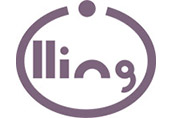Research
The Laboratoire de LINGuistique de Nantes (LLING) was created in 2004 as a Équipe d'Accueil (EA3827) headed by Hamida Demirdache. Since January 1, 2016, the laboratory has been a Unité Mixte de Recherche (UMR 6310) CNRS / Université de Nantes. It was directed by Sabrina Bendjaballah (2016-2021) and has been headed since January 1, 2022 by Hamida Demirdache.
Research at LLING aims to define human language capacity, i.e. to model the representations and mechanisms involved in language production, comprehension and perception. The work combines an explicit theoretical framework with a strong and varied empirical base: the aim is to shed light on issues in formal linguistics and attested linguistic variation using new data derived from different complementary methodologies (field linguistics, experimental linguistics and corpora).
The languages studied at LLING belong to genetically and typologically varied families:
The scientific activities of LLING members cover several areas of linguistic research: phonetics, phonology, prosody, morphology, syntax, semantics, pragmatics, language acquisition and psycholinguistics. The work carried out in the laboratory is currently structured around two research operations:
1) Sound forms, which brings together the laboratory's work on the question of sound structures, with a particular focus on the interfaces between phonetics, phonology, psycholinguistics and morpho-syntax. The work examines the abstract, categorical knowledge that determines the properties of language sounds and their relationships, as well as their articulatory, acoustic properties and perception.
► Learn more
2) Structure and interpretation, which brings together the laboratory's work on issues in morpho-syntax, semantics, pragmatics, acquisition and multimodality. The work seeks to determine how to articulate (morpho-)syntactic representations with the construction of semantic interpretations at sentence and discourse level.
► Learn more
In each of these operations, work overlaps on various themes, which give rise to collaborations both internal to the laboratory and with various partners at both national and international levels.
Research at LLING aims to define human language capacity, i.e. to model the representations and mechanisms involved in language production, comprehension and perception. The work combines an explicit theoretical framework with a strong and varied empirical base: the aim is to shed light on issues in formal linguistics and attested linguistic variation using new data derived from different complementary methodologies (field linguistics, experimental linguistics and corpora).
The languages studied at LLING belong to genetically and typologically varied families:
- Romance languages (Spanish, French, Gallo, Italian, Portuguese, Romanian, Sardinian)
- Germanic languages (German, English, Faroese, Dutch)
- Afro-Asian languages (Arabic, Berber, Coptic, Somali, modern Sudarabic)
- East Asian languages (Chinese, Korean, Japanese).
1) Sound forms, which brings together the laboratory's work on the question of sound structures, with a particular focus on the interfaces between phonetics, phonology, psycholinguistics and morpho-syntax. The work examines the abstract, categorical knowledge that determines the properties of language sounds and their relationships, as well as their articulatory, acoustic properties and perception.
► Learn more
2) Structure and interpretation, which brings together the laboratory's work on issues in morpho-syntax, semantics, pragmatics, acquisition and multimodality. The work seeks to determine how to articulate (morpho-)syntactic representations with the construction of semantic interpretations at sentence and discourse level.
► Learn more
In each of these operations, work overlaps on various themes, which give rise to collaborations both internal to the laboratory and with various partners at both national and international levels.
Updated on 03 June 2024.

